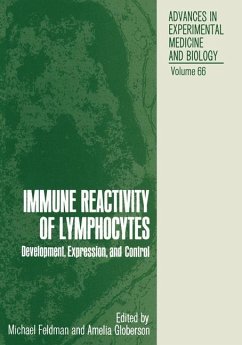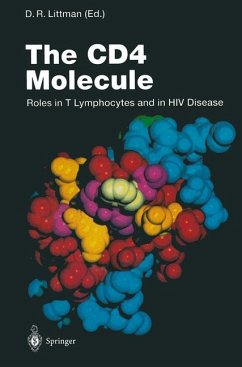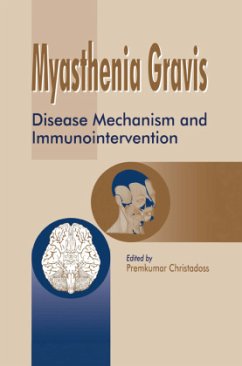
Immunoregulation

PAYBACK Punkte
20 °P sammeln!
Immunoregulation is one of the areas which has witnessed the most explosive advances of immunology during the past decade. It is in this area that the current view of the immune system has arisen and developed. There is indeed little doubt that immune reactions are primarily determined by messages which are genera ted within the immune system and passed among different types of immunologie cells. This cell communication not only determines the type, intensity and duration of the response after perturbation of the immune system by exogenous antigens, but it is also essential for preventing auto...
Immunoregulation is one of the areas which has witnessed the most explosive advances of immunology during the past decade. It is in this area that the current view of the immune system has arisen and developed. There is indeed little doubt that immune reactions are primarily determined by messages which are genera ted within the immune system and passed among different types of immunologie cells. This cell communication not only determines the type, intensity and duration of the response after perturbation of the immune system by exogenous antigens, but it is also essential for preventing autoimmune reactions and their clinical conse quences. In order to assure aperfect balance within the enormous com plexity of the immune system, it is not surprising that multiple self-regulatory mechanisms are organized at different levels, such as antibody feedback, idiotypic-anti-idiotypic responses, suppres sor and helper T cells, lymphokine signals and genetic require ments. A nu mb er of observations in recent years have, however, demonstrated that consistent contributions to the immunological homeostasis are given also by signals generated outside of the immune system, namely,in the central and autonomous nervous system as weIl as in the endocrine apparatus. Furthermore, the interactions between the immune system and the other body homestatic mechanisms seem to be bidirectional: if immunological cells may be targets of neuroendocrinological factors, immunological products seem in turn to contribute to the neuro endocrine homeostasis.














